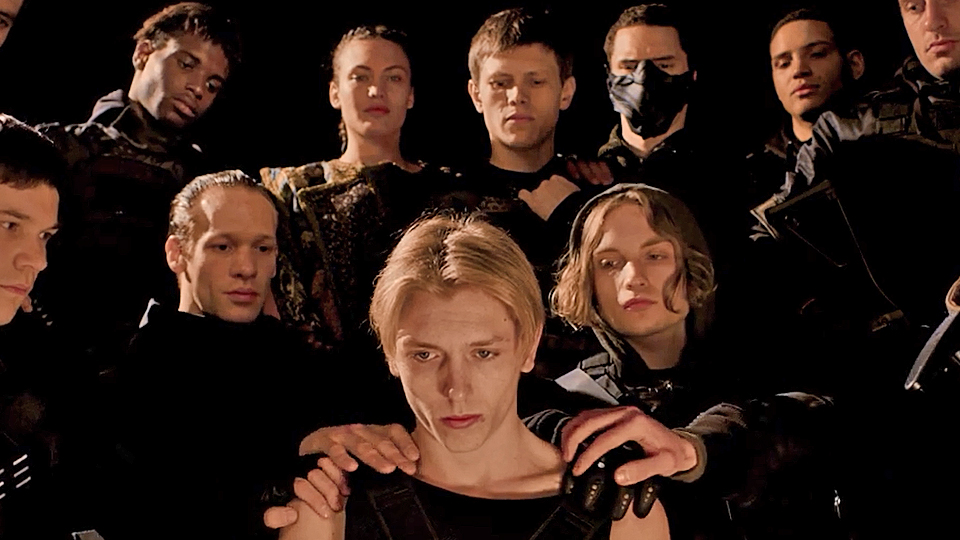Jessica Forever
by Hope Madden
Shudder’s latest premiere, the French film Jessica Forever, offers a scifi antidote to war films. This is a quietly absorbing genre piece concerned with the lives left to those who know nothing more than fighting for survival, those who must endure not only what battle has done to them, but what battle has encouraged them to do.
In an unnamed future, Jessica (Aomi Muyock, Love), collects and rehabilitates “orphans” — feral young men with nothing and no one. Left entirely on their own, they wreak bloody havoc on society and are hunted by government-controlled drones.
We open on one such young man, Kevin (Eddy Suiveng). He’s thrown himself through a pane of glass in what looks to be a recently abandoned home. As a heavily armed tactical unit descends on the premises, only to softly embrace the combatant, writers/directors Caroline Poggi and Jonathan Vinel introduce the visual and tonal fluidity the film will emphasize throughout its running time.
The dystopian cinematic landscape is highly populated, but Jessica Forever manages to carve out a unique space.
Muyock’s enigmatic central figure, so quietly effecting, provides the film its compelling center of gravity. Around her orbits a loose family of young men, and as Poggi and Vinel weave in and out of their day-to-day, we’re tuned into the filmmakers’ primary interest.
Unlike so very many movies out there, it is not the glamour or danger of war that attracts these filmmakers. Instead, Jessica Forever focuses on the mental and emotional wreckage these young men carry around with them as they cling to each other and their varying ideas of family, home and normalcy.
Everything about the design of this low budget scifi poem is astonishing. Working with cinematographer Marine Atlan, who shot the pair’s short After School Knife Fight, Poggi and Vinel create and sustain a hypnotic mood.
An absurd beauty to some of the shots helps the filmmakers offset its deliberate pacing. The entire crew, sound design in particular, pulls their weight as well, and the cumulative effect moves this lightly plotted ensemble piece in daring directions.


